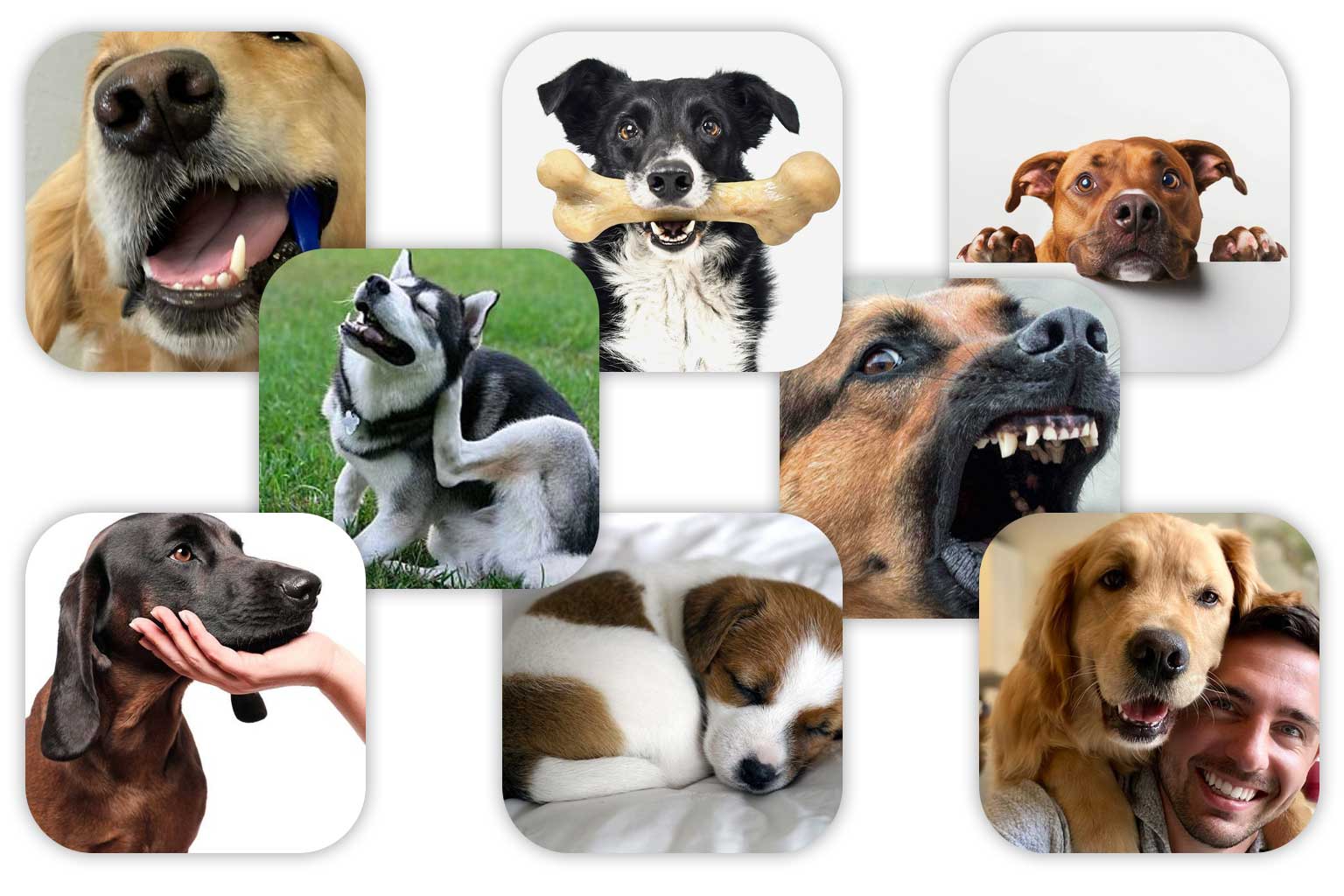
The Complete Guide to Dog Care: Training, Nutrition, and Allergies
Introduction
Dogs are loyal, energetic, and loving companions — but raising a healthy, well-behaved dog takes more than just walks and belly rubs. Proper training, nutrition, and allergy management are essential for long-term health and happiness.
In this guide, we’ll explore how to train your dog effectively, what foods are safe (and unsafe), the most common allergies, and a few extra tips every dog owner should know.
Part 1: How to Train Your Dog
Training is not just about teaching commands — it builds trust and strengthens the bond between you and your dog.
1. Basic Obedience Training
- Start with simple commands: sit, stay, come, down.
- Use positive reinforcement (treats, praise, play).
- Keep sessions short (5–10 minutes) to avoid frustration.
2. Crate and House Training
- Use crates as safe spaces, not punishment.
- Establish a consistent potty schedule.
3. Socialization
- Introduce your dog to other pets, people, and environments early.
- Helps prevent aggression and fear later in life.
Part 2: Best Foods for Dogs
Dogs thrive on diets rich in protein, healthy fats, and balanced nutrients.
Healthy Foods for Dogs
- Lean meats: chicken, turkey, beef (cooked, no seasoning).
- Fish: salmon and sardines (omega-3 for coat and joints).
- Vegetables: carrots, pumpkin, sweet potatoes.
- Fruits: apples (no seeds), blueberries, watermelon (in moderation).
- High-quality dog food: with real meat as the first ingredient.
Foods Dogs Should Avoid
- Chocolate, caffeine (toxic to heart and nervous system).
- Onions and garlic (damage red blood cells).
- Grapes and raisins (kidney failure).
- Avocado (toxic in large amounts).
- Cooked bones (risk of splintering).
- Excess salt and fatty foods.
Part 3: Common Dog Allergies
Dogs can develop allergies to food, the environment, or fleas.
1. Food Allergies
- Common triggers: chicken, beef, dairy, wheat, soy.
- Symptoms: itching, ear infections, vomiting, diarrhea.
2. Environmental Allergies
- Triggers: pollen, dust, mold, grass.
- Symptoms: constant paw licking, sneezing, watery eyes.
3. Flea Allergies
- Severe itching from flea saliva.
- Can lead to hair loss and skin infections.
If your dog shows allergy signs, consult a vet and consider an elimination diet.
Part 4: Extra Tips for Dog Care
- Exercise: Most dogs need 30–60 minutes of activity daily.
- Hydration: Fresh water should always be available.
- Dental care: Brush teeth or provide dental chews to prevent decay.
- Routine vet visits: Annual checkups catch health issues early.
- Mental stimulation: Puzzle toys and training games keep dogs sharp.
The Role of Personalized Nutrition
Every dog is unique. A Labrador puppy needs different food than a senior Chihuahua. That’s why personalized nutrition is the future of dog care.
With AI-powered platforms like Fammo, you can create diets based on:
- Age and breed
- Weight and activity level
- Allergies and health issues
This ensures your dog gets the perfect balance of calories and nutrients for a long, healthy life.
External Resources
FAQs
Q1: What’s the best age to start training my dog?
As early as 8 weeks. Puppies learn quickly, but older dogs can also be trained.
Q2: Is homemade food better than commercial food?
Homemade food can be good if balanced, but commercial diets are often more consistent. Personalized nutrition combines the best of both.
Q3: What’s the most common food allergy in dogs?
Proteins like chicken and beef are the most common triggers.
Q4: Can I feed my dog fruits every day?
Yes, but only safe options and in moderation. Avoid grapes, raisins, and citrus.
Q5: How do I know if my dog is overweight?
You should be able to feel ribs without pressing hard. Lack of waist definition may indicate obesity.
Key Takeaways
- Training builds trust and shapes good behavior.
- Dogs need a protein-rich, balanced diet — avoid toxic foods.
- Allergies often stem from food, environment, or fleas.
- Exercise, hydration, and vet care are essential for long-term health.
- Personalized nutrition is the best way to meet your dog’s unique needs.
Summary
Your dog deserves more than basic care. With the right training, safe foods, and allergy management, you can give them a happier, healthier life.
Discover how Fammo’s AI-powered nutrition plans make it easy to feed your dog exactly what they need.
Sign up today and transform your dog’s health with personalized care!